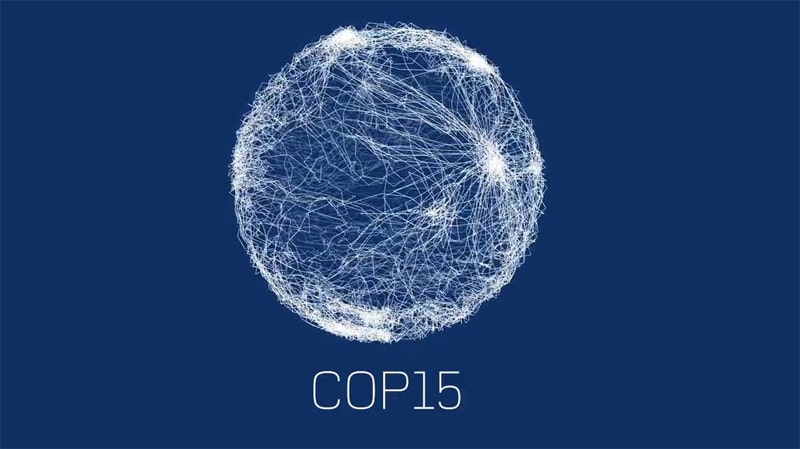What’s in today’s article?
- About GBF
- India’s position
- News Summary
Why in News?
- India has stated at the ongoing UN biodiversity conference (COP15 to the CBD) in Montreal that agriculture in developing nations is the source of life and livelihood for vulnerable sections, which cannot be targeted for elimination.
- The remarks clarified India’s position at a time when some EU countries are pushing for the abolition of farm subsidies as a crucial component of the post-2020 global biodiversity framework (GBF), which is anticipated to be finalised soon.
What is the Global biodiversity framework (GBF)?
- GBF is a new draft released by the Secretariat of the UN Convention on Biological Diversity (CBD) to guide actions worldwide through 2030, to minimise biodiversity loss and preserve nature.
- Its proposed aims include reducing pesticide use by at least two-thirds and eliminating the most detrimental subsidies, including fisheries and agricultural subsidies.
- One of the key targets of the GBF – the 30×30 target – is to protect at least 30% of the planet (especially areas of particular importance – land and sea – for biodiversity) by 2030.
- Once approved unanimously by all 195 countries under the CBD, the GBF will be signed as a global deal to take specific measures under 23 proposed targets by 2030.
- The targets which are not accepted by one or more countries will not be part of the Framework.
What is India’s position on the GBF?
- Overall:
- The GBF must be framed in the light of science and equity, and the sovereign right of nations over their resources, as provided for in the CBD.
- If climate is profoundly linked to biodiversity, then the principle of equity and common but differentiated responsibilities and respective capabilities (CBDR-RC) must equally apply to biodiversity.
- Biodiversity must be promoted through positive investment.
- On subsidies, pesticide use and invasive alien species:
- That the essential support to vulnerable sections cannot be called subsidies and targeted for elimination, but may be rationalised.
- India’s position on pesticide use, stating that a numerical global target for pesticide reduction is unnecessary and should be left up to individual countries to decide.
- India’s position on the proposed numerical target (not feasible without the necessary baseline and relevant scientific evidence) of dealing with the impacts of invasive alien species on native biodiversity.
News Summary – India’s Environment Minister at the COP15:
- Nature is under stress because of the historical disproportionate and iniquitous greenhouse gas (GHG) emissions of the developed countries.
- Therefore, nature-based solutions to global warming and other environmental challenges are not an answer without resolute action by developed countries to measure up to their historical and current responsibilities.
- The increased expectations through GBF targets call for matching means of implementation, especially through public finance and the Global Environment Facility (GEF) that caters to multiple Conventions is the only hope.
- GEF, established on the eve of the 1992 Rio Earth Summit, is a catalyst for action on the environment.
- Through its strategic investments, the GEF works with partners to tackle the planet’s biggest environmental issues.
- The value of biodiversity to humankind also lies in its economic dimension alongside the cultural and social.
- Sustainable use and access and benefit sharing are key to promoting biodiversity, alongside the efforts to conserve, protect and restore.
- Access and benefit sharing (ABS) – one of the 3 objectives of the CBD, refers to the fair and equitable sharing of benefits arising out of the utilisation of genetic resources.
Q1) What are invasive alien species?
Invasive Alien Species (IAS) are animals and plants that are introduced accidentally or deliberately into a natural environment where they are not normally found, with serious negative consequences for their new environment.
Q2) What is access and benefit sharing?
The Nagoya Protocol on Access to Genetic Resources and the Fair and Equitable Sharing of Benefits is an international agreement which aims at sharing the benefits arising from the utilization of genetic resources in a fair and equitable way.
Last updated on June, 2025
→ UPSC Notification 2025 was released on 22nd January 2025.
→ UPSC Prelims Result 2025 is out now for the CSE held on 25 May 2025.
→ UPSC Prelims Question Paper 2025 and Unofficial Prelims Answer Key 2025 are available now.
→ UPSC Calendar 2026 is released on 15th May, 2025.
→ The UPSC Vacancy 2025 were released 1129, out of which 979 were for UPSC CSE and remaining 150 are for UPSC IFoS.
→ UPSC Mains 2025 will be conducted on 22nd August 2025.
→ UPSC Prelims 2026 will be conducted on 24th May, 2026 & UPSC Mains 2026 will be conducted on 21st August 2026.
→ The UPSC Selection Process is of 3 stages-Prelims, Mains and Interview.
→ UPSC Result 2024 is released with latest UPSC Marksheet 2024. Check Now!
→ UPSC Toppers List 2024 is released now. Shakti Dubey is UPSC AIR 1 2024 Topper.
→ Also check Best IAS Coaching in Delhi






















